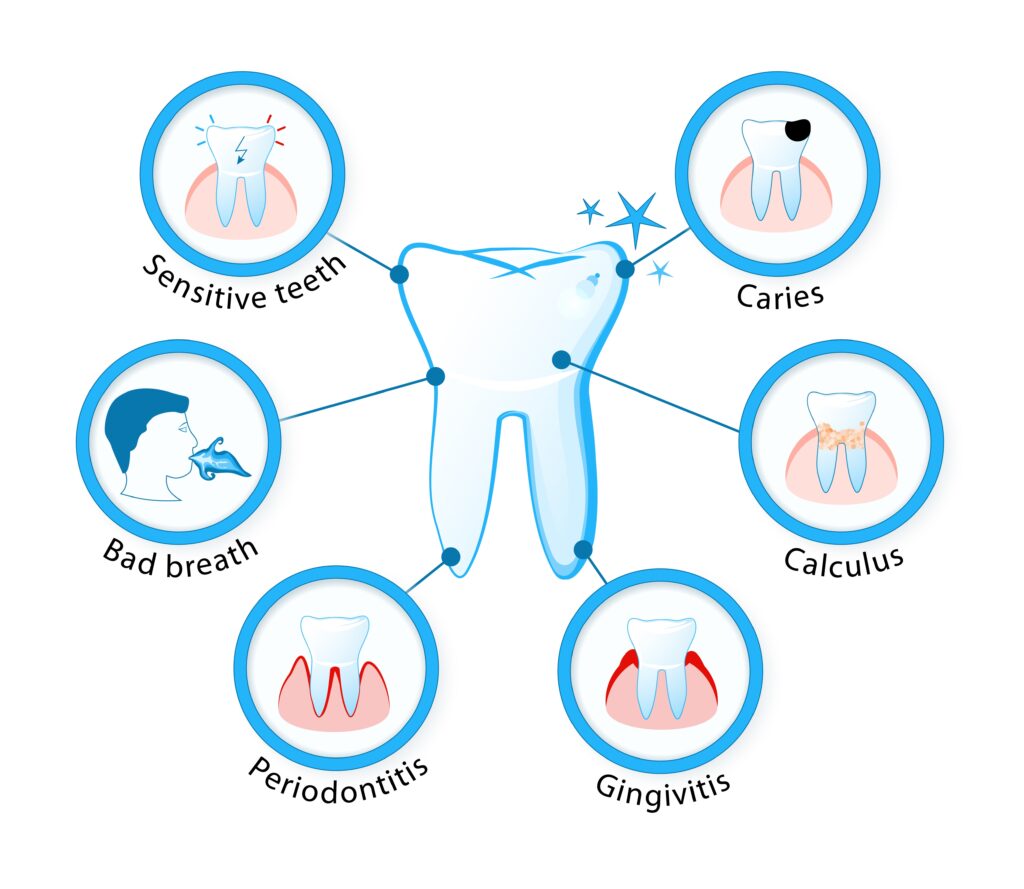Periodontal Therapy
Examination
A dental examination is not just counting your teeth. More studies are emerging linking oral health to other general health problems.
We recommend that patients visit every six to twelve months for a dental examination to keep your mouth in top condition. At each appointment we inspect the following :
- Updated personal and medical history
- Oral cancer assessment
- Extra-oral and intra-oral examination to check for oral cancer and any other medical problems that may be related to the head and neck
- Hard tissue examination (teeth)
- Basic Periodontal Examination (BPE), this is a gingival/periodontal health screening that identifies a need for periodontal treatment
- Discussion of any problems found
- Estimate of proposed treatment
When clinically necessary we also take x-rays. This enables us to see any underlying problems with your teeth, gums and bone levels.
Dental problems

Treatments
Examination Fees
Periodontium
The periodontium is the specialised tissues that surround and support the teeth:
- The gingiva
- The Periodontal ligament
- Cementum
- Alveolar (jaw) bone
Basically the foundations of your teeth!
Periodontal therapy and root planing
Normal tooth
periodontitis

Periodontal health should be achieved in the least invasive and most cost-effective manner. This is often accomplished through non-surgical periodontal treatment.
Not to be confused with a scale and polish, periodontal therapy and root planing is a careful cleaning of the root surfaces to remove plaque and calculus (tartar) from deep periodontal pockets and to smooth the tooth root to remove bacterial toxins.
Periodontal therapy and root planing is sometimes followed by adjunctive therapy such as local delivery antimicrobials, systemic antibiotics, and host modulation, as needed on a case-by-case basis.
After periodontal therapy and root planing, many patients do not require any further active treatment. However, the majority of patients will require ongoing maintenance therapy to sustain health.
Non-surgical periodontal treatment does have its limitations. When it does not achieve periodontal health, other options may be indicated to restore periodontal health.

